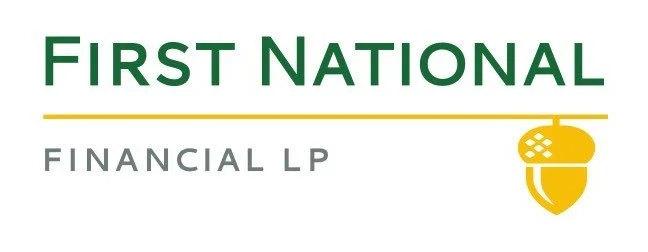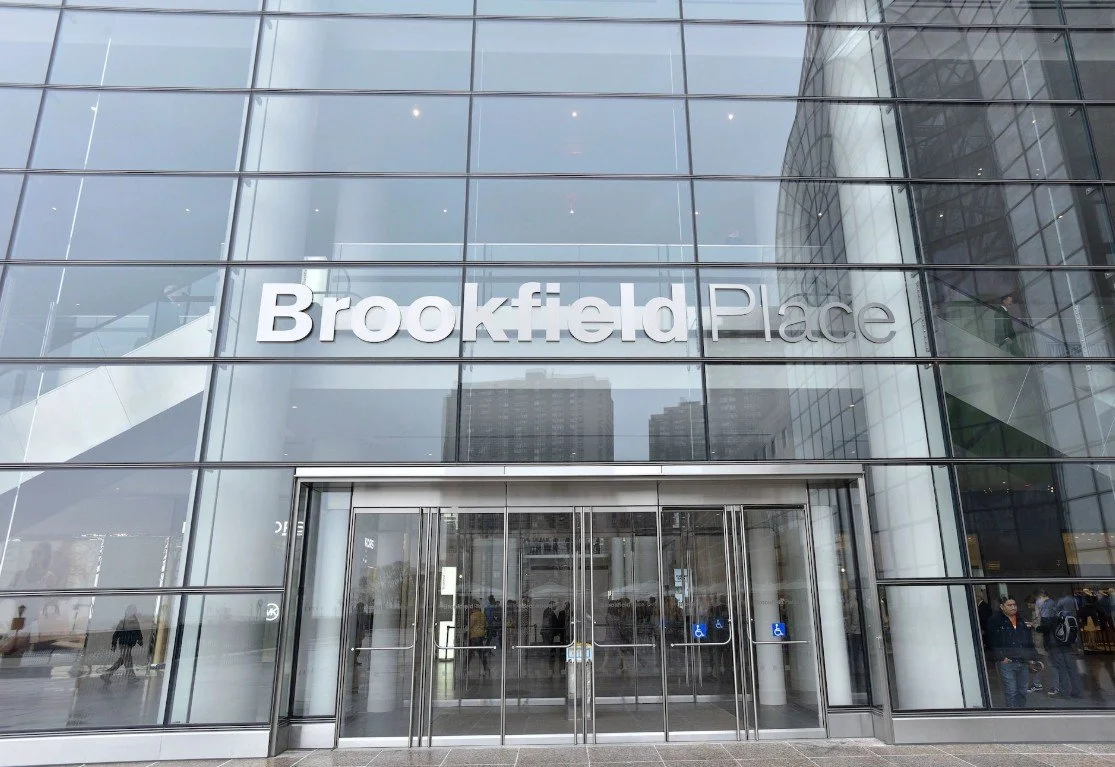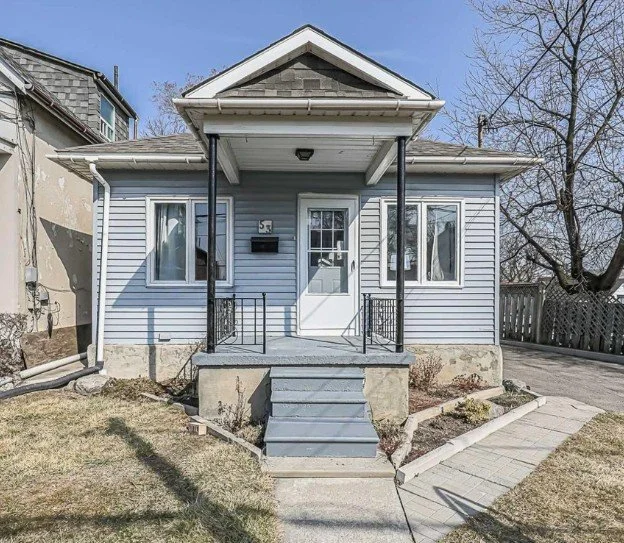Why First National Just Sold for $2.9 Billion (And What It Means for You)
One of Canada’s biggest non-bank mortgage lenders, First National Financial, is being acquired. And this isn’t just another business deal, this is a massive shift in Canada’s mortgage landscape.
The buyers? Birch Hill Equity Partners and Brookfield Asset Management, two heavyweight investment firms known for backing industry-shaping deals.
The sellers? First National co-founders Stephen Smith and Moray Tawse, who built the company from zero into a $100B+ mortgage empire over the past 35 years.
And the big question is:
Why would they sell their baby now?
Why First National Is a Big Deal
If you’ve ever had a mortgage through a broker in Canada, there’s a good chance First National was involved.
Before MCAP surpassed it, First National was Canada’s largest monoline mortgage company.
Today, it manages over C$155 billion in mortgages, both its own and dozens of lender sub‑servicing contracts.
They underwrite, service, and handle client relations for other companies; everything from origination to default management is done under the FN umbrella. That makes them the engine behind thousands of mortgages you’d never realize they touched.
So when founders this seasoned decide to cash out?
It’s worth paying attention.
Meet the Acquirers: Birch Hill & Brookfield
Birch Hill Equity Partners
A Toronto-based mid-market private equity firm with more than C$6 billion under management.
Since 1994, Birch Hill has backed over 70 private companies and delivered consistent EBITDA growth and returns. They’ve backed companies like Shred-it, Sleep Country, and now, First National.
Brookfield Asset Management
A Canadian global investment powerhouse currently based in New York City with over US$1 trillion in assets.
Owned by Brookfield Corporation
A global powerhouse in real estate and infrastructure. When there’s a major property-related deal in Canada, Brookfield’s probably involved.
Interesting tidbit: Mark Carney, our current PM, used to be chairman of the board up until he decided to run for Prime Minister.
Together, these two bring institutional scale, deep capital, and global execution muscle. They’re buying a majority stake in First National. But Smith and Tawse aren’t disappearing - they’ll still hold minority ownership and (likely) keep shaping strategy behind the scenes.
The Deal in Plain English
Purchase Price: C$48/share, and based on the total aggregate equity - roughly a purchase total of $2.9B
Ownership Split: Birch Hill and Brookfield will control ~62% together, while founders Stephen Smith and Moray Tawse retain ~19% each.
Timeline: Expected to close in Q4 2025, pending regulatory and shareholder approvals
Why Sell Now? A Changing Mortgage Market
According to Ron Butler (aka Ron the Mortgage Guy), the decision makes perfect sense, if you understand how government policy has changed - and I completely agree.
“When First Nat started, the government was eager for competition [versus Banks] in the mortgage space… but policies changed.”
Back then, First National thrived on CMHC-insured high-ratio mortgages - meaning home purchases/mortgages with less than 20% of a down payment, and under $1.5M purchase price (previously $1M - this recently changed as well).
These CMHC-Insured Mortgages used to make up nearly 45% of the market. But today?
That number has dropped to 8% - meaning only 8% of the mortgages circling, transferring, funding are insured by CMHC/Sagen/Canada Guaranty.
Many reasons for it - in a challenging market, many are refinancing and voiding their CMHC insurance if they had it, or bridging the gap for the lower affordability with stagnating income vs soaring home prices with higher down payments and extended amortization to 30 years.
The rules around mortgage insurance, bulk insurance, and competitive lending tightened, making it harder for lenders like First National to scale the same way they used to.
“Stephen Smith [Co-Founder of First Nat] saw this shift coming. That’s why he doubled down on alternative lending: investing in lenders and banks that charge higher rates and serve borrowers the big banks can’t.”
This sale isn’t a retreat. It’s a calculated exit.
The founders saw the writing on the wall, and decided to sell the majority of their shares while they’re ahead.
What Does This Mean for Homeowners?
In the short term? Not much changes. Your mortgage is still your mortgage. First Nat made that clear.
Their CEO remains their CEO. Their subservicing contracts remain in place. Business as usual after the sale/purchase closes.
But long term, this could signal bigger shifts in the industry:
We may see more consolidation: Big players buying up lending platforms and back-end systems. We’ve seen other acquisitions by other monolines absorbing smaller monolines like:
More recently the online lender Nesto acquiring CMLS in 2024
More alternative lending growth: There’s been a surge over the last few years in alt lending, meaning mortgages that fall outside of the traditional guidelines. Investors are betting on it as the number of borrowers that fit into the neat lending criteria of insured mortgages are dwindling away. High home prices and rising debt among other things are pushing people into the alternative lending space - and the investors are seeing dollar signs. This signals higher rates yield higher returns in a low-growth economy.
You see it in more creative mortgage product offerings - like extended ratios and extended amortizations with CMLS AVEO’s 40 year Amortization mortgages (cha-ching for investors!)
Higher rates, tighter rules: As the traditional CMHC-insured model shrinks, expect lenders to chase yield elsewhere - with bulk insurance being limited and qualification rules tightening up, less and less loans are fitting in that box. That means lenders, and their respective investors, can’t rely on that steady pipeline of guaranteed stable loans like they used to.
They’re forced to chase profitability in higher-risk, higher-return lending (i.e., alternative or uninsurable mortgages).
That means higher interest rates for borrowers and fewer ultra-low-rate options in the traditional space.
TL;DR: When you hear “tighter rules,” think: fewer insured loans, more risk on the lender's shoulders, and a shift in strategy to make up for it.
Final Thoughts
This isn’t just about two guys selling their company.
This is a sign that Canada’s mortgage world is evolving, and the old “default-safe” system is being reshaped by private capital, investor returns, and tighter policy.
That the two guys that started their juggernaut mortgage monoline 35 years ago said “yeah, it’s about time we take a step back and hand over the reigns to Brookfield and Birch Hill to make decisions about First National’s strategic future in a changing mortgage market - maybe we’ll see Excalibur, our alternative lender, soar with their support”.
Look, I’m not saying this to freak people out - I’m looking to help you read between the lines of what this means, and what you might see from mortgage lenders in the future, and what the government is signaling by remaining steadfast in their insurance rules following huge shifts in the real estate world.
A $1M+ home is not uncommon anymore (RE: a regular 1M dollar home in Toronto)
People refinancing their mortgage? Also not uncommon. Actually super common considering the cost of living.
30 year amortizations? Also not uncommon. Anyone buying with 20%+ down and with a 30 year amortization are uninsurable.
The only 30 year amortizations that are insured are for first time homebuyers, or buyers buying a new build with less than 20% down.
Meaning - insured mortgages are becoming less and less common, and lenders are reacting to it. Their bread and butter is becoming hard to find and finance.
I’m not saying this to sound the alarm. But when the founders of a $100B+ mortgage engine decide it’s time to step back, it’s a signal: the Canadian mortgage landscape is shifting.
And if you’re a homeowner or investor, it’s worth understanding where things are heading, and how to stay ahead of it.
Want to learn more? I love chatting about this. And I want to help you succeed in a changing market.
If you’re a homeowner or buyer, it’s never been more important to understand your options, and choose a lender who’s aligned with your long-term goals.
Got questions about your mortgage strategy in this changing market?
Jeff Dinsmore
Mortgage Broker
FSRA # 10315
TMG - The Mortgage Group





